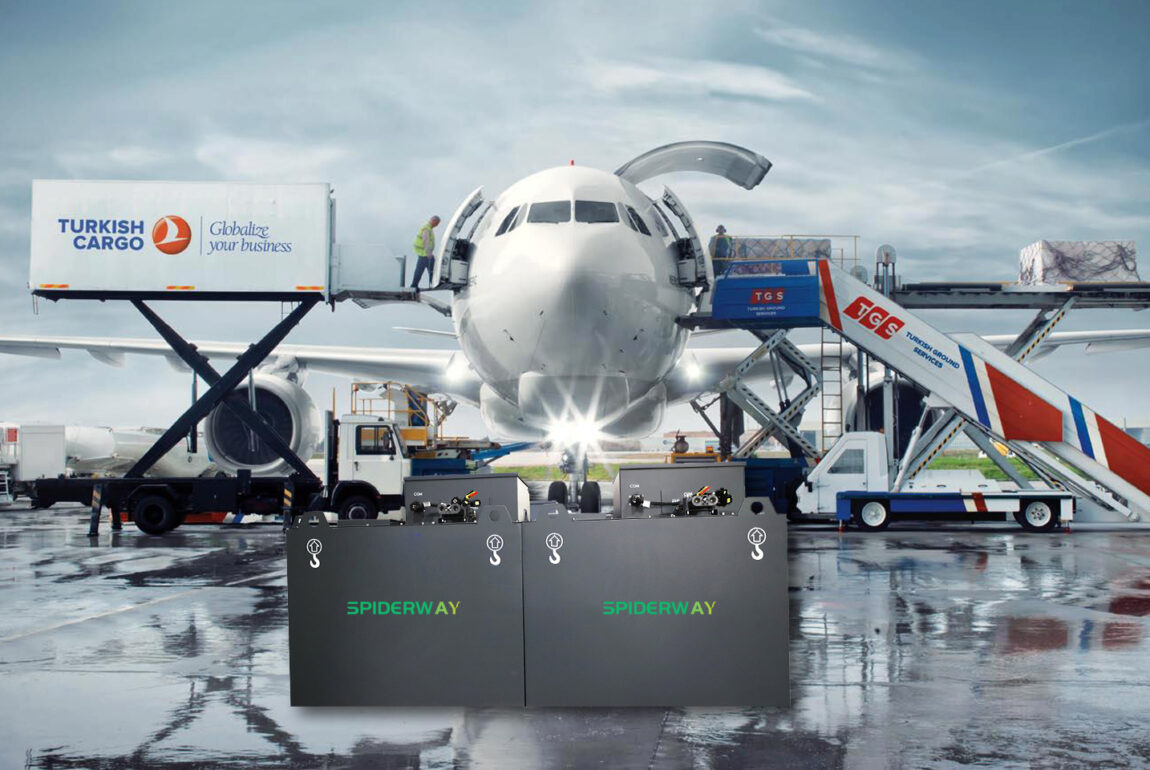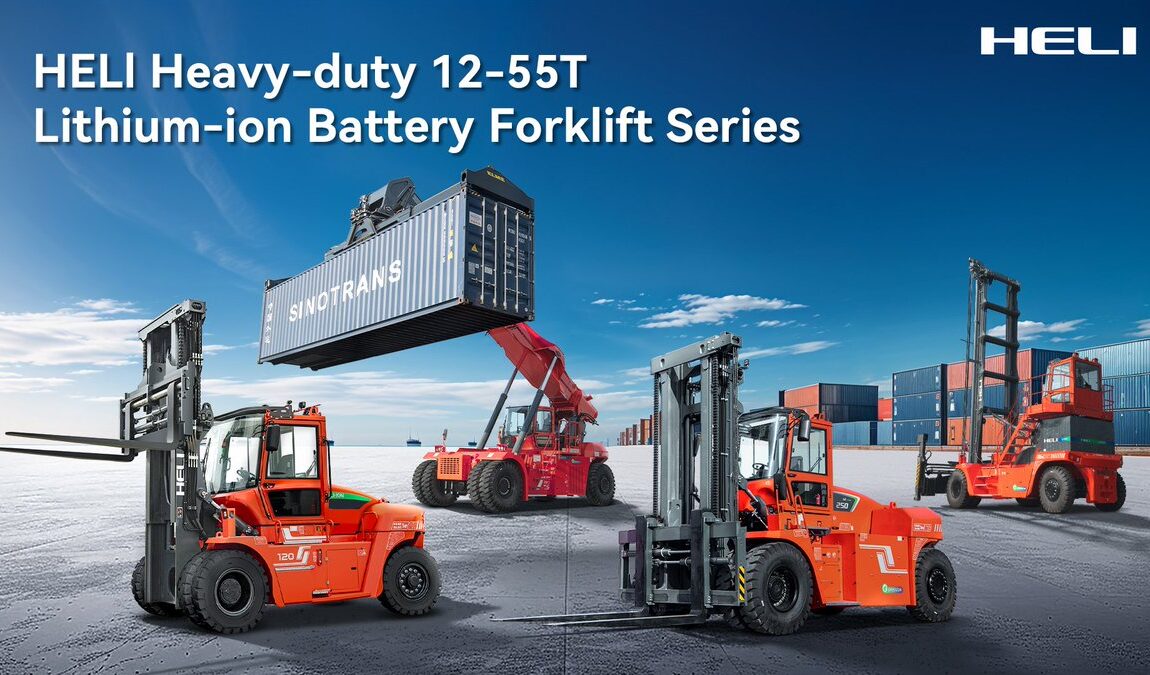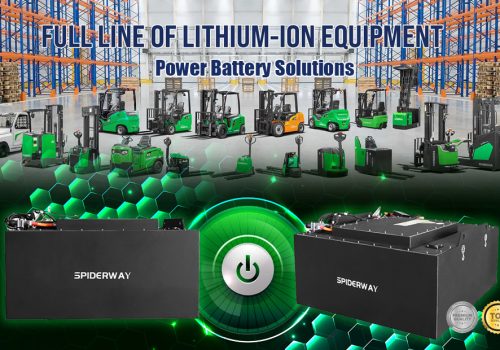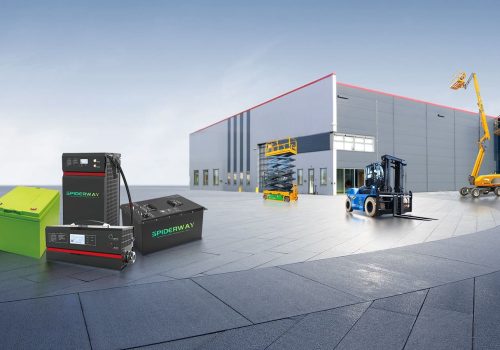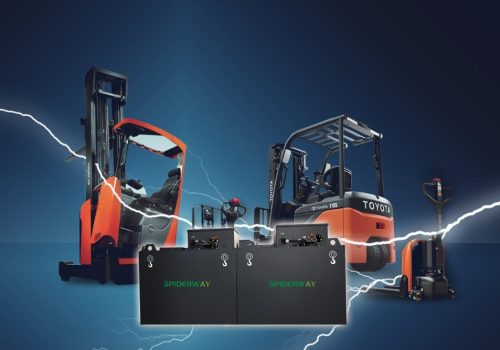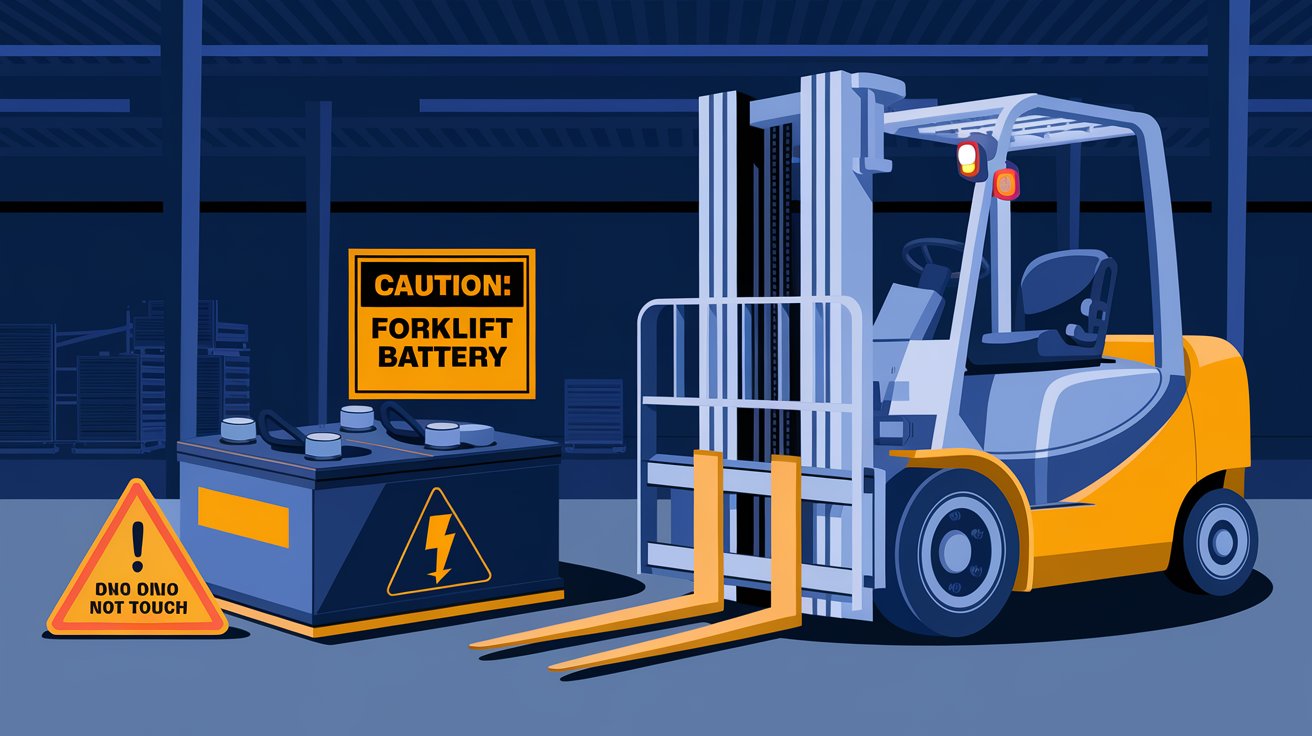
Forklifts are essential vehicles in the workplace, providing significant utility and productivity enhancements. However, they also pose substantial safety risks, as many workplace transport-related accidents involve forklifts. This underscores the importance of adhering to forklift safety practices. National Forklift Safety Day, initiated by the Industrial Truck Association, aims to ensure the safety of forklift manufacturing, operation, and personnel. The 11th annual event will take place on June 11, 2024. In support of this event, SPIDERWAY will guide you through essential forklift battery safety tips and practices.
2024 Forklift Safety Day Safety Practices
Quick Guide to Forklift Battery Safety
In the material handling sector, modern forklifts have increasingly shifted from internal combustion power solutions to battery-powered options. Consequently, forklift battery safety has become a critical component of overall forklift safety.
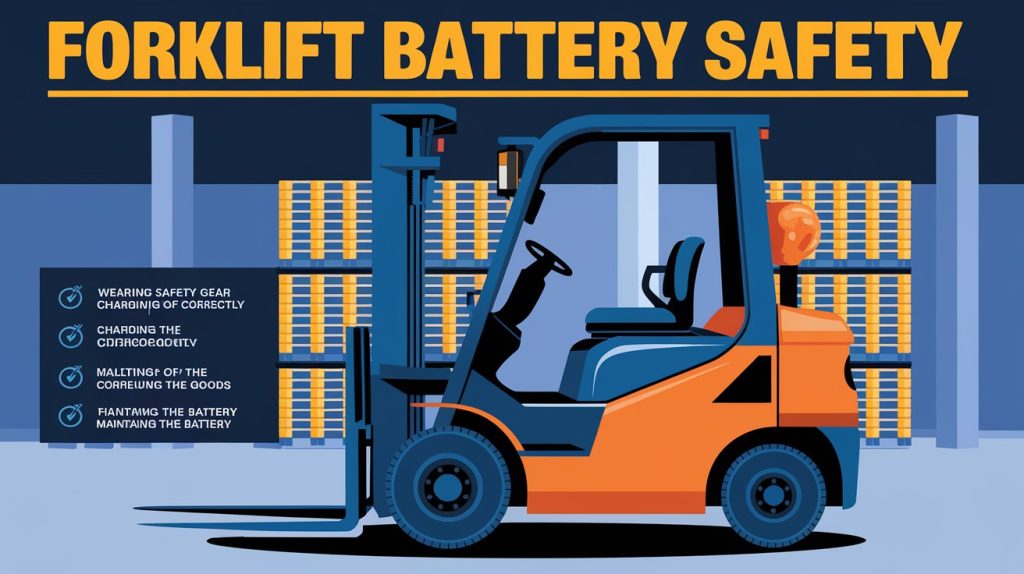
Which is Safer: Lithium or Lead-Acid?
Electric forklifts typically use two types of batteries: lithium forklift batteries and lead-acid forklift batteries. Each type has its own advantages. However, from a safety perspective, lithium forklift batteries have a clear edge. Lead-acid forklift batteries contain lead and sulfuric acid, which can leak if mishandled. Additionally, they require specific ventilated charging stations, as charging generates harmful fumes. Lead-acid batteries also need to be replaced during shift changes, which can be hazardous due to their weight and the risk of falls leading to operator injuries.In contrast, lithium-powered forklift operators do not have to handle these hazardous materials. They can charge directly on the forklift without the need for replacement, reducing the likelihood of related accidents. Furthermore, all lithium-ion forklift batteries are equipped with Battery Management Systems (BMS), providing comprehensive protection and ensuring overall safety.
How to Choose a Safe Lithium Forklift Battery?
Many lithium forklift battery manufacturers employ advanced technologies to enhance safety. For instance, SPIDERWAY, a leader in industrial lithium-ion batteries and a member of the Industrial Truck Association, prioritizes quality and safety. The company is committed to developing reliable, efficient, and safe lithium power solutions that not only meet but exceed safety standards, delivering optimal performance and reliability in any material handling application.
- Product on sale
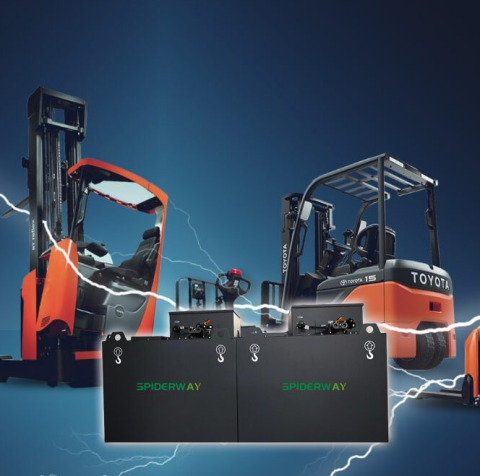 48V 404Ah LiFePO4 lithium battery for LIUGONG forkliftOriginal price was: $5,399.00.$5,318.00Current price is: $5,318.00.
48V 404Ah LiFePO4 lithium battery for LIUGONG forkliftOriginal price was: $5,399.00.$5,318.00Current price is: $5,318.00. - Product on sale
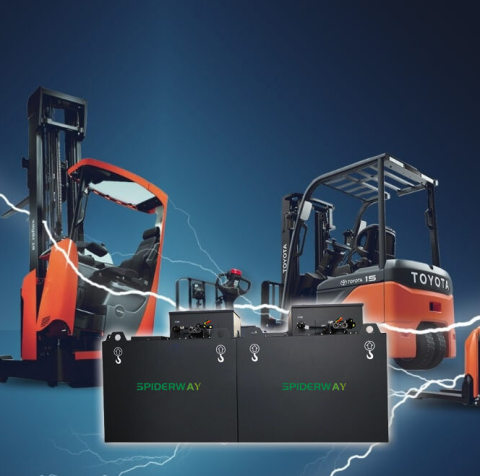 48V 606Ah LiFePO4 lithium battery for HELI forkliftOriginal price was: $7,999.00.$7,978.00Current price is: $7,978.00.
48V 606Ah LiFePO4 lithium battery for HELI forkliftOriginal price was: $7,999.00.$7,978.00Current price is: $7,978.00. - Product on sale
 80V 404Ah LiFePO4 lithium battery for HELI K2 3.5T forkliftOriginal price was: $8,399.00.$8,310.00Current price is: $8,310.00.
80V 404Ah LiFePO4 lithium battery for HELI K2 3.5T forkliftOriginal price was: $8,399.00.$8,310.00Current price is: $8,310.00. - Product on sale
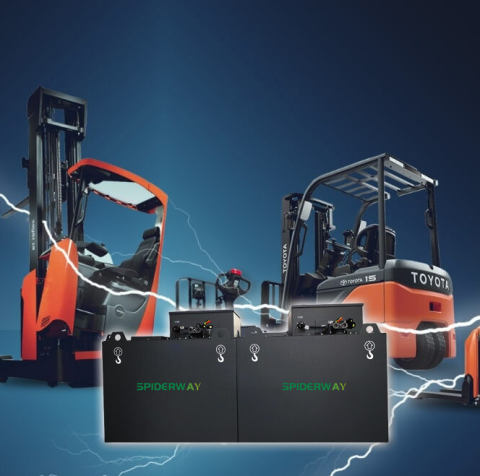 48V 404Ah LiFePO4 lithium battery for LIUGONG 2.5TforkliftOriginal price was: $5,399.00.$5,318.00Current price is: $5,318.00.
48V 404Ah LiFePO4 lithium battery for LIUGONG 2.5TforkliftOriginal price was: $5,399.00.$5,318.00Current price is: $5,318.00. - Product on sale
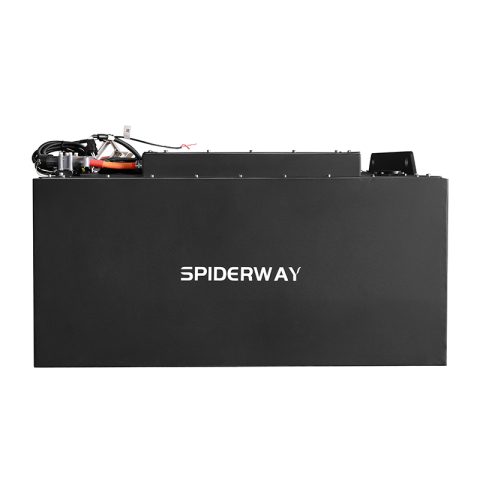 80V 544Ah LiFePO4 lithium battery for TOYOTA forkliftOriginal price was: $11,199.00.$11,190.00Current price is: $11,190.00.
80V 544Ah LiFePO4 lithium battery for TOYOTA forkliftOriginal price was: $11,199.00.$11,190.00Current price is: $11,190.00. - Product on sale
 48V 272Ah LiFePO4 lithium battery for LIUGONG forkliftOriginal price was: $3,599.00.$3,581.00Current price is: $3,581.00.
48V 272Ah LiFePO4 lithium battery for LIUGONG forkliftOriginal price was: $3,599.00.$3,581.00Current price is: $3,581.00. - Product on sale
 24V 202Ah LiFePO4 lithium battery for LINDE T20 forkliftOriginal price was: $1,399.00.$1,329.00Current price is: $1,329.00.
24V 202Ah LiFePO4 lithium battery for LINDE T20 forkliftOriginal price was: $1,399.00.$1,329.00Current price is: $1,329.00. - Product on sale
 48V 544Ah LiFePO4 lithium battery for HELI CPD20-F1 forkliftOriginal price was: $7,199.00.$7,162.00Current price is: $7,162.00.
48V 544Ah LiFePO4 lithium battery for HELI CPD20-F1 forkliftOriginal price was: $7,199.00.$7,162.00Current price is: $7,162.00. - Product on sale
 48V 165Ah LiFePO4 lithium battery for AGVOriginal price was: $2,199.00.$2,172.00Current price is: $2,172.00.
48V 165Ah LiFePO4 lithium battery for AGVOriginal price was: $2,199.00.$2,172.00Current price is: $2,172.00.
SPIDERWAY’s forklift batteries utilize lithium iron phosphate technology, recognized as the safest lithium chemistry type, offering excellent thermal and chemical stability. This means they are less likely to overheat and will not catch fire even if punctured. With automotive-grade reliability, they can withstand rigorous use. The proprietary BMS monitors performance in real-time, intelligently preventing overcharging, deep discharging, and short circuits.Additionally, the batteries come with an integrated fire suppression system, and all materials used are fire-resistant, preventing thermal runaway and enhancing safety. To ensure ultimate safety, SPIDERWAY forklift batteries are certified to meet strict standards such as UL 1642, UL 2580, UL 9540A, UN 38.3, and IEC 62619, while our chargers comply with UL 1564, FCC, KC, and CE standards, featuring multiple protective measures.Different brands may offer various safety features. Therefore, understanding all aspects of safety is crucial for making informed decisions. By investing in reliable lithium forklift batteries, businesses can enhance workplace safety and productivity.
Safety Tips for Handling Lithium Forklift Batteries
Acquiring safe batteries from trusted suppliers is a great starting point, but practicing safety when operating forklift batteries is equally important. Here are some tips:
- Always follow the installation, charging, and storage instructions provided by the battery manufacturer.
- Avoid exposing forklift batteries to extreme environmental conditions, as overheating or excessive cold can affect performance and lifespan.
- Always turn off the charger before disconnecting the battery to prevent arcing.
- Regularly inspect wires and other components for signs of wear and damage.
- If a battery malfunctions, maintenance and repairs should be conducted by authorized, trained, and experienced professionals.
Quick Guide to Safe Operation Practices
In addition to battery safety practices, forklift operators should adhere to additional practices to ensure optimal forklift safety:
- Operators should wear full personal protective equipment (PPE), including safety gear, high-visibility jackets, safety shoes, and helmets, according to environmental factors and company policies.
- Conduct daily safety checks of your forklift before each shift using a checklist.
- Never load goods exceeding the forklift’s rated capacity.
- Slow down and sound the forklift horn when navigating blind spots or reversing.
- Never leave a running forklift unattended, and do not leave the keys in the unattended forklift.
- Follow designated pathways as specified by workplace regulations when operating the forklift.
- Do not exceed speed limits while operating the forklift, and remain vigilant and aware of your surroundings.
- Only trained and authorized personnel should operate forklifts to avoid hazards and injuries.
- Do not allow anyone under 18 years of age to operate a forklift in non-agricultural environments.
According to the Occupational Safety and Health Administration (OSHA), over 70% of forklift accidents are preventable. Effective training can reduce accident rates by 25% to 30%. Adhering to forklift safety policies, standards, and guidelines, along with comprehensive training, can significantly enhance forklift safety.
Make Every Day Forklift Safety Day
Forklift safety is not a one-time task; it is an ongoing commitment. By fostering a culture of safety, staying informed about best practices, and prioritizing safety daily, businesses can achieve better equipment safety, operator and pedestrian safety, and a more efficient and safer workplace.
Author Profile

- https://tawk.to/chat/6228c78d1ffac05b1d7dc569/1ftnkn0nk
- SpiderWay LiFePO4 battery sales engineer with ten years of experience in industrial vehicle batteries, ready to answer any questions you may have about industrial LiFePO4 battery products.
Latest entries
GSE Battry KnowledgeNovember 4, 2024Analysis of LiFePO4 Battery Solutions for GSE in Emirates Airlines
Industry NewsNovember 4, 2024Summary of Major Events in the Global Power Battery Sector – October 2024
Club CarNovember 4, 2024Why Australian Golf Cart Battery Replacements Are Turning to Imports from China
EventsNovember 3, 20242024 Shanghai CEMAT ASIA: Unveiling SPIDERWAY’s Cutting-Edge LFP Power Solutions for the Logistics and Warehousing Industry
